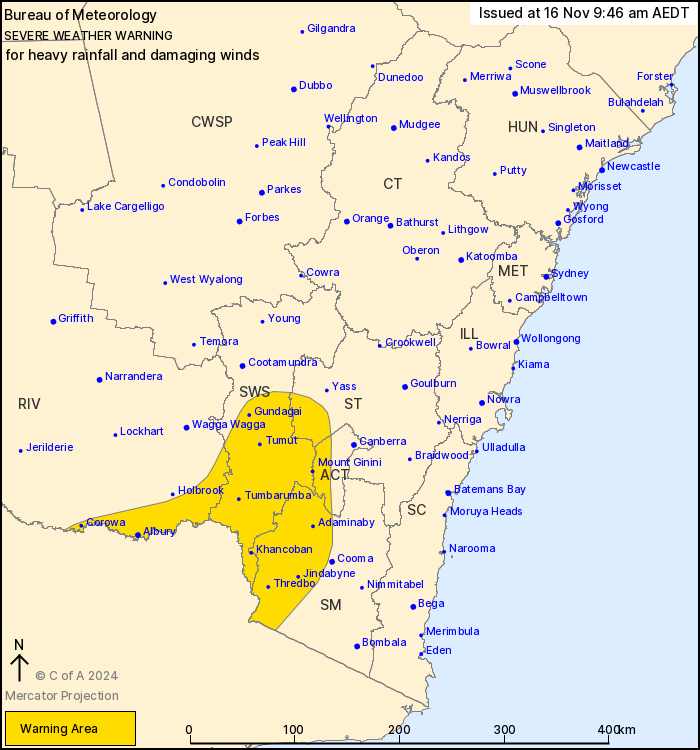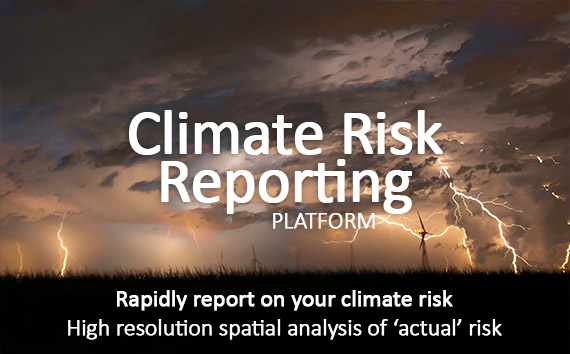Source: Bureau of Meteorology
For people in parts of Southern Tablelands, South West Slopes,
Riverina, Snowy Mountains and Australian Capital Territory Forecast
Districts.
Issued at 9:46 am Saturday, 16 November 2024.
Heavy rainfall and damaging winds developing about the southeast
from early Sunday morning.
Weather Situation: A strong cold front moving into western New
South Wales on Saturday night will move into the central parts of
the state early Sunday morning and combine with elevated moisture
feeding into the area from the north.
HEAVY RAINFALL which may lead to FLASH FLOODING is forecast with
areas of rain and thunderstorms for the southeast of New South
Wales from Sunday morning. Six-hourly rainfall totals of 30 to 60
mm are likely, with isolated totals up to 80 mm possible over
alpine peaks. 24-hourly rainfall totals of 60 to 80 mm are likely,
with isolated falls of 120 mm possible, mainly near the Victorian
border.
Localised INTENSE RAINFALL is also possible with thunderstorms. A
separate Severe Thunderstorm Warning will be issued if very
dangerous thunderstorms with INTENSE RAINFALL are detected.
DAMAGING WINDS averaging 80 to 90 km/h with peak gusts up to 130
km/h are possible over alpine areas above 1900 metres during Sunday
morning.
Heavy rainfall and Damaging winds are forecast to ease below
warning thresholds late Sunday afternoon or evening.
Locations which may be affected include Albury, Tumbarumba,
Gundagai, Tumut, Khancoban and Corowa.
The State Emergency Service advises that people should:
* Don't drive, ride or walk through flood water.
* Keep clear of creeks and storm drains.
* If you are trapped by flash flooding, seek refuge in the highest
available place and ring 000 if you need rescue.
* Be aware that run-off from rainfall in fire affected areas may
behave differently and be more rapid. It may also contain debris
such as ash, soil, trees and rocks.
* After bushfires, heavy rain and the loss of foliage can make the
ground soft and heavy, leading to a greater chance of
landslides.
* Move vehicles under cover or away from trees.
* Secure or put away loose items around your house, yard and
balcony.
* Keep at least 8 metres away from fallen power lines or objects
that may be energised, such as fences.
* Trees that have been damaged by fire are likely to be more
unstable and more likely to fall.
* Report fallen power lines to either Ausgrid (131 388), Endeavour
Energy (131 003), Essential Energy (132 080) or Evoenergy (131 093)
as shown on your power bill.
* Stay vigilant and monitor conditions. Note that the landscape
may have changed following bushfires.
* For emergency help in floods and storms, ring your local SES
Unit on 132 500.

15/Nov/2024 10:55 PM



